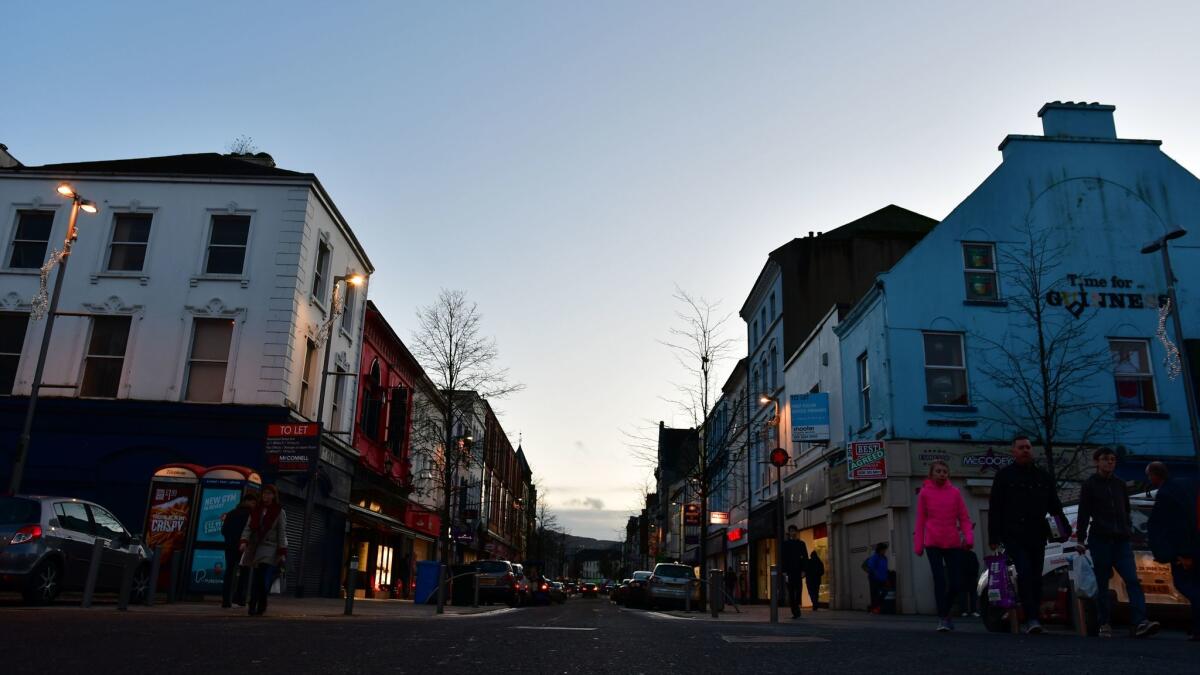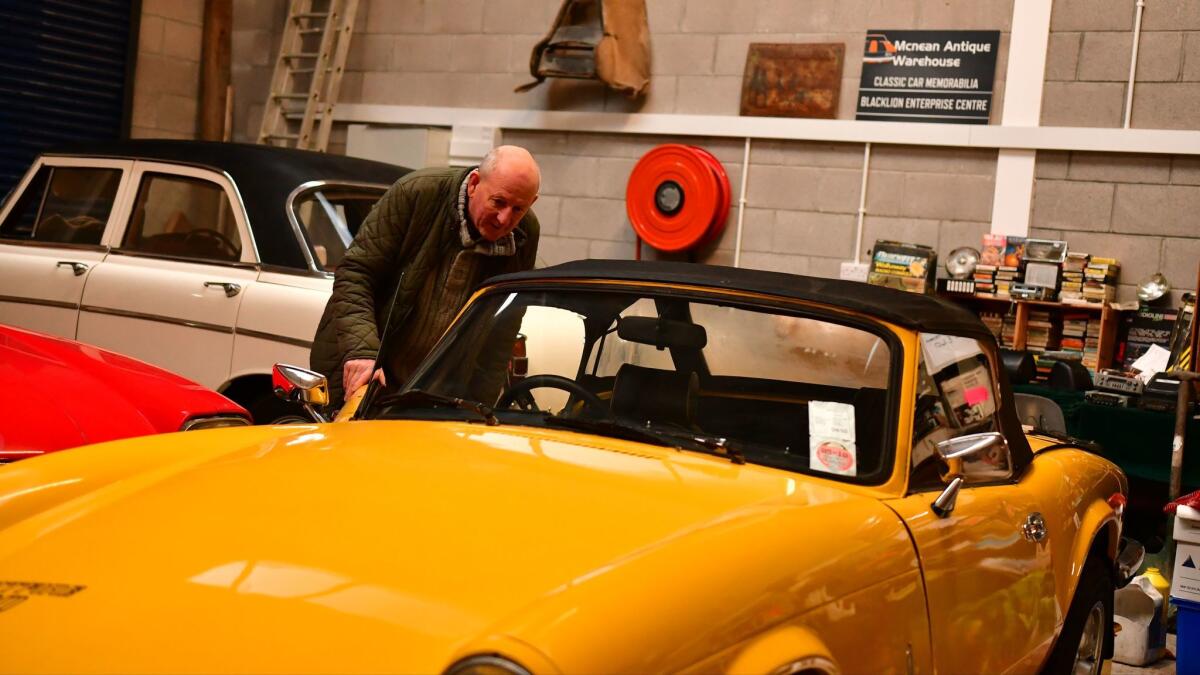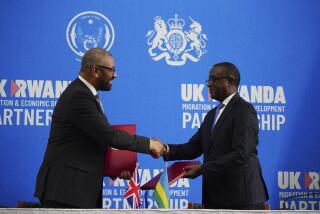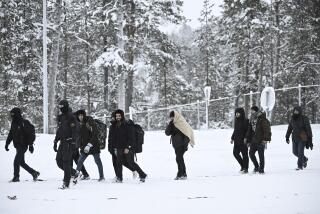No one is talking about building a wall, but Ireland fears a ‘Brexit’ divide

It takes only a few seconds to drive across the bridge between the towns of Blacklion and Belcoo.
That they are in different countries is not readily apparent, notwithstanding the speed limit signs. Blacklion is in the Republic of Ireland and uses kilometers. Belcoo is in Northern Ireland and uses miles.
Since the 1998 peace deal that ended three decades of civil war in Northern Ireland, Blacklion, population 194, and Belcoo, population 540, have essentially operated as one town.
“There are no barriers. It’s how people want it,” said 50-year-old Eugene McCann, who runs a bustling grocery store and post office in Belcoo.
That is likely to change with the implementation of “Brexit,” the 2016 referendum in which Britain voted to leave the European Union.
The split is expected to be completed in 2019, but the negotiations are already increasing tension between the British and Irish governments — and stirring anxiety along the 310-mile border between Ireland and Northern Ireland about the pending return to an earlier era.
Katy Hayward, a political sociologist at Queen’s University Belfast who has researched the effect of the Brexit vote on border regions, said that most people would like the border to stay just as it is.
Many adults in Blacklion and Belcoo remember border checks all too well.
Starting in the 1960s, Northern Ireland was torn by violence as mostly Catholic Irish nationalists sought an end to British rule and mostly Protestant loyalists sought to keep it. Anybody crossing between Ireland and Northern Ireland — or traveling near the border — ran a gauntlet of security and customs checkpoints.
The system “was a nightmare,” McCann recalled. “And around here wasn’t even the most insecure part.”
Blacklion and Belcoo were essentially cut off from each other.
“I remember the border when I was young fella, you couldn’t even go back and over to do your shopping,” said 60-year-old Hughie Nolan, who runs an antique store in Blacklion featuring vintage sports cars and audio equipment.

The peace agreement — along with the creation of the European Union’s single market five years earlier — broke open the frontier. All the border checks were dismantled.
Trade and business have flourished. Roughly 30,000 people cross the border each day for work, along with thousands of trucks hauling meat, milk and other agricultural goods, including ingredients for the famous Irish beer Guinness.
“Some of the staff here live in the Republic and cross that bridge every day on their way to work,” McCann said of his grocery store.
A short drive east in Clontibret, a border town in the Republic of Ireland, the situation is much the same.
“Our parish [is] crisscrossed by hundreds of roads and laneways which local farmers have used for generations. Many farms straddle the border which is often only demarcated by a small stream less than a meter wide,” said Frank McManus, who helps run the Gaelic football club there.
In the Brexit referendum, nearly 56% of voters in Northern Ireland wanted to remain in the European Union. But the United Kingdom as a whole voted for the exodus, leaving Northern Ireland no choice.
The British government, the Irish government and the European Union all say they want the border to remain open once the split is complete. But without border controls and checks, it is unclear how that would be possible if the European Union wants to prevent untaxed goods from slipping into its single market or if Britain wants to stop migrants with free passage within the EU from entering through Ireland.
“If the U.K. is leaving the customs union and single market, then it seems there will necessarily have to be some kind of hard border,” said Federico Fabbrini, head of the recently formed Brexit Institute at Dublin City University.
For the moment, uncertainty rules as business owners along the border contemplate how the change will affect them.
“People in business and farming just don’t know what to expect and so at the minute are playing a waiting game,” McManus said.
He said people were speculating that companies based in the Republic of Ireland would have to establish subsidiaries in Northern Ireland to do business there, and vice versa.
It’s difficult to find anybody in Blacklion or Belcoo who wants border checks.
Nolan, the antiques shop owner in Blacklion, said that many of his customers are just passing through and that stricter border controls would hurt that flow and his sales.
Still, he was hopeful that officials would find a solution, perhaps a technological one involving cameras and pre-clearance of certain goods to prevent delays if checkpoints are reinstated.
Across the bridge in Belcoo, McCann held the door to his grocery store as customers from both sides of the border came in and out. He lacked confidence about the future.
“Nobody knows what’s going to happen,” he said.
Roughneen is a special correspondent.
More to Read
Start your day right
Sign up for Essential California for news, features and recommendations from the L.A. Times and beyond in your inbox six days a week.
You may occasionally receive promotional content from the Los Angeles Times.






